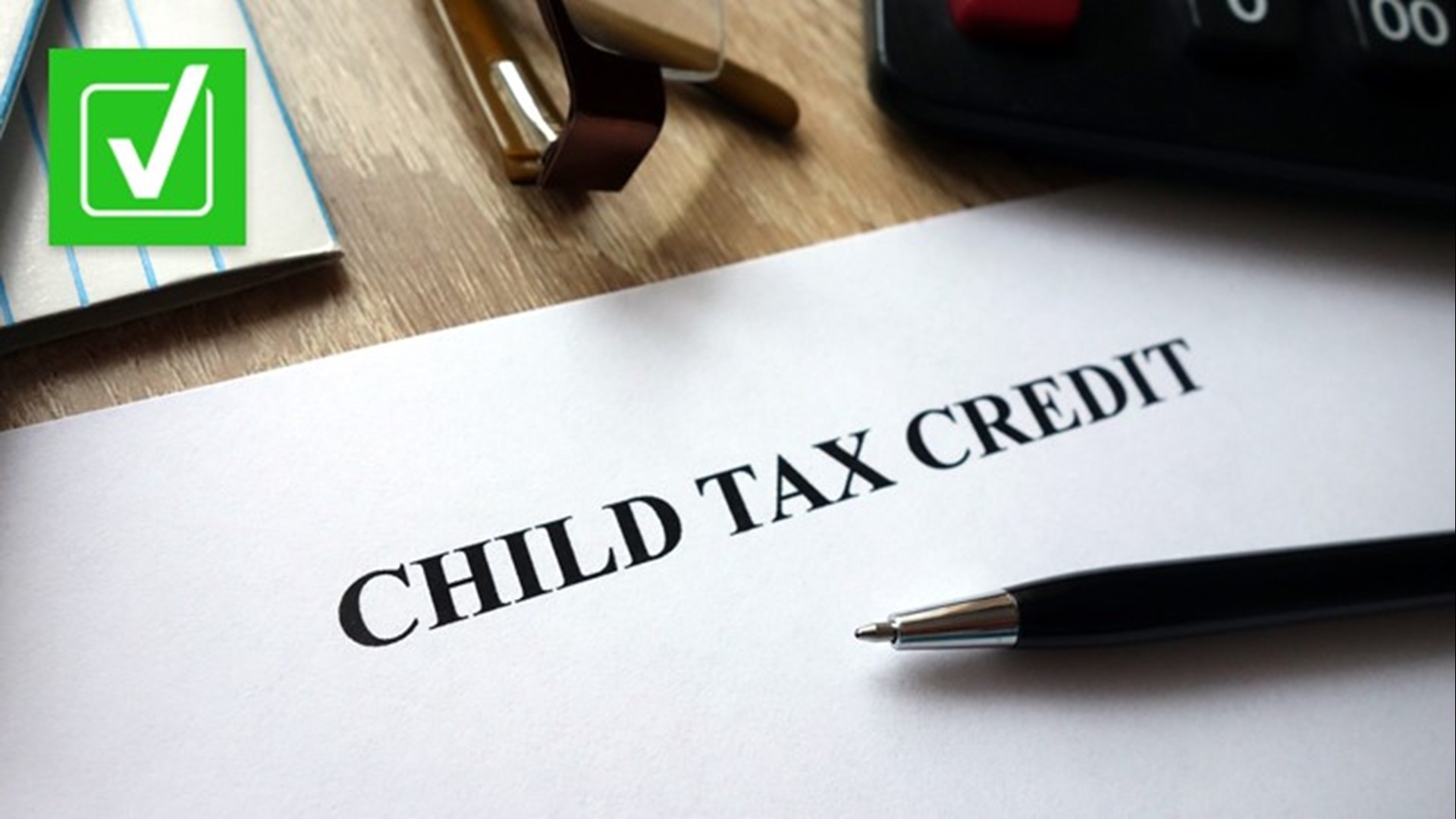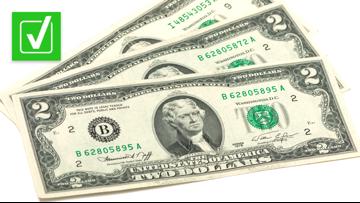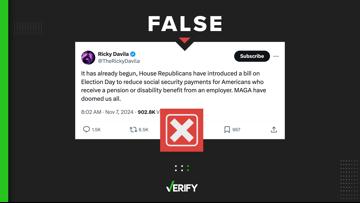One major change in the child tax credit this year is that people who are eligible will be able to get up to half of the total credit in advance monthly payments. The IRS says it will begin sending out monthly payments on July 15.
In order to determine who is eligible for the advance payments, the IRS is using information, such as income and dependents, from 2019 and 2020 tax returns. But not everyone eligible for the payment would have filed tax returns those years.
THE QUESTION
VERIFY viewer Stephanie F. asked: Can people who haven’t filed taxes get this year’s child tax credit?
THE SOURCES
- Internal Revenue Service (IRS)
- Mark Steber, chief tax information officer at Jackson Hewitt Tax Service
THE ANSWER
Yes, people who have not filed taxes can get this year’s child tax credit.
WHAT WE FOUND
Mark Steber, chief tax information officer at Jackson Hewitt Tax Service, said there is no minimum income requirement to qualify for the child tax credit this year.
The IRS on June 14 announced it set up the “Non-filer Sign-up tool” to help low-income families register for the advanced monthly child tax credit payments.
“This tool provides a free and easy way for eligible people who don't make enough income to have an income tax return-filing obligation to provide the IRS the basic information needed—name, address, and Social Security numbers—to figure and issue their Advance Child Tax Credit payments,” the IRS said in the announcement.
The Non-filer Sign-up tool is for people who did not file a 2019 or 2020 tax return and did not use the IRS non-filers tool last year to claim the two stimulus checks authorized by Congress.
Steber said people who need to use the new Non-filer Sign-up tool may find out they’re eligible for additional money beyond the child tax credit. He said the tool can also be used to claim stimulus money that was passed by Congress in March 2021, as well as the recovery rebate for any stimulus money not received from the two payments approved in 2020 as part of COVID-19 relief.
The maximum child tax credit was increased this year as part of the $1.9 trillion American Rescue Plan, the same legislation that authorized stimulus payments in March 2021. This year, eligible families can earn up to $3,600 per child ages 5 and younger, and up to $3,000 per child ages 6 to 17, an increase from the maximum $2,000 per child credit that was previously offered.
The maximum child credit is available to people at the following income levels:
- $75,000 or less for singles
- $112,500 or less for heads of household
- $150,000 or less for married couples filing a joint return and qualified widows and widowers
Some people who surpass those income thresholds will still qualify for a child tax credit, but they won’t get the maximum benefit. Eligible single filers who make up to $200,000 and joint filers who make up to $400,000 can still get a $2,000 per child tax credit as they have in previous years. The credit is phased out above those income levels.
The IRS on June 7 said it began mailing letters to more than 36 million families who may qualify for advance child tax credit payments. The federal agency said eligible families would receive a second letter listing an estimate of their advance payments, which start July 15 and continue monthly through 2021. The advance payments will be worth up to $300 a month for each eligible child ages 5 and younger, and up to $250 a month for each eligible child ages 6 to 17.
People who don’t want advance monthly payments can choose to opt out. That option will be made available in an online portal the IRS says will soon be available.
In total, the monthly payments could add up to half of the child tax credit, with people claiming the rest of the credit when they file tax information for 2021.
Plus, this year, the child tax credit is fully refundable. Prior to 2020, the refundable portion of the child tax credit was limited to $1,400 per child.
“Under the new program, whether you have any income, no income, liability for tax, or no liability for tax, the money is fully available to taxpayers,” Steber said. “So, it's a fully refundable credit, not just available to offset any or some tax liability.”
The changes to the child tax credit under the American Rescue Plan are limited to 2021. Without new legislation, the child tax credit in 2022 will revert to previous standards. President Biden has proposed extending the child tax credit changes through 2025.
More from VERIFY: Yes, eligible parents will be able to get the increased child tax credit for children born in 2021
VERIFY
Our journalists work to separate fact from fiction so that you can understand what is true and false online. Please consider subscribing to our daily newsletter, text alerts and our YouTube channel. You can also follow us on Snapchat, Twitter, Instagram or Facebook.












